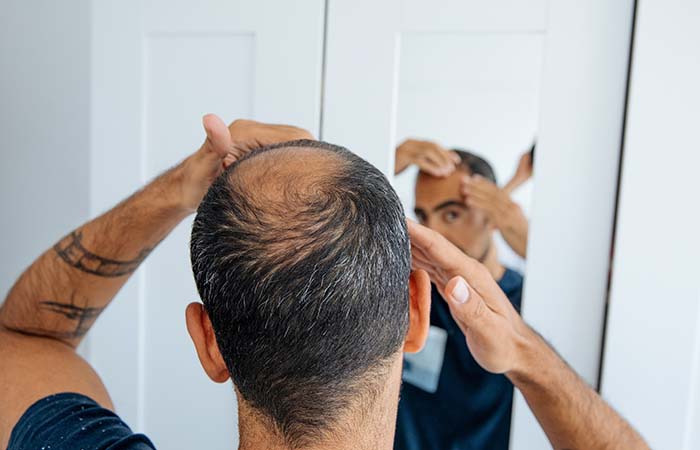Hair loss drug to come with warning card amid sexual dysfunction reports
In Clinical news
Follow this topic
Bookmark
Record learning outcomes
Packs of finasteride, a drug used to treat male pattern hair loss and benign prostate enlargement, will come with a patient alert card in future amid reports of depression and sexual dysfunction from some men taking the medicine.
The Medicines and Healthcare Products Regulatory Agency (MHRA) is urging patients taking the medicine for either indication to “stay vigilant” for potential side effects following an in-depth safety review sparked by concerns that not all patients and healthcare professionals are aware of these side effects, which are currently listed in the product information.
Finasteride works by blocking the conversion of testosterone to dihydrotestosterone, “leading to a significant reduction in scalp and serum DHT,” says the MHRA.
The agency has received 432 Yellow Card reports since 1992 concerning sexual dysfunction after taking finasteride, including loss of sex drive and erectile dysfunction. In “almost half” of these cases, symptoms did not resolve.
The MHRA is warning patients that some men taking finasteride experience “persistent” sexual dysfunction after stopping the drug, although the evidence for this is “mixed” with some studies suffering from limitations such as small sample size.
The MHRA has received 281 reports of depressed mood and suicidal and self-harm behaviours relating to finasteride since 1993.
Finasteride is not prescribed for hair loss on the NHS, and so is obtained for this purpose in a 1mg dose from online pharmacies and to a lesser extent private hair loss clinics. The dosage for benign prostatic hyperplasia (BPH) is 5mg.
The patient safety card will be introduced “over the next nine to 12 months” following work with patients to decide on appropriate wording.
The MHRA has also met with online pharmacies providing finasteride and found that while some have “thorough screening and monitoring processes” in place to support the safe prescribing of finasteride, others do not. The agency said it has “ongoing activities” with organisations including the GPhC “to improve these processes”.
“A common theme from the conclusions in the literature review was that healthcare professionals should be explaining potential side effects clearly, completing pre-screening questionnaires to identify patients at risk of adverse effects and actively monitoring patients,” said the MHRA.
MHRA chief safety officer Dr Alison Cave said: “It’s crucial that patients are aware of vital information about the medicines they’re taking.
“The new patient alert cards aim to raise awareness among men taking finasteride about the potential for psychiatric and sexual side effects, so they can make an informed decision about their treatment and know what to do if they experience these side effects.
“If you’re taking finasteride 1mg (Propecia) for hair loss and develop depression and suicidal thoughts, stop treatment and contact your doctor. If these symptoms develop with finasteride 5mg (Proscar) for benign enlargement of the prostate, consult your doctor immediately for further advice.
“Any concerns about sexual dysfunction should be discussed with your healthcare professional.’

